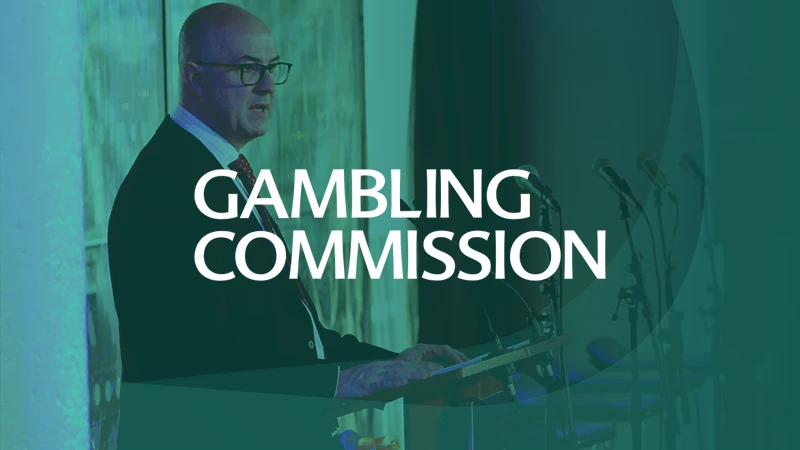Regulations and commercial drivers – a balancing act

With gambling regulation very much back in the spotlight, regulators and operators are again retreating to their default positions. For regulators, it’s a relentless march, with seemingly ever-tightening rules and restrictions. For operators, it’s a tooth-and-nail fight, a resistance to regulatory change that with certainty impacts their bottom line and challenges the commercial fundamentals of their business. The very essence of regulation within a legalised gambling sector like the UK market is a balancing act. It's one that must find an equilibrium between the need to protect gamblers and ensure a fair framework with gambling operators to function profitably. There's also the positive knock-on implications for tax receipts and employment.
Sometimes, the balance will swing too far in one direction, causing undue pressure on operators that stifles innovation, hampers growth and in extreme cases drives companies under. On other occasions over the years, gambling operators have outpaced regulators, ending up in situations where gamblers are getting a raw deal or are short of the protections they need. With such competing interests on either side of the table, where best should the lines be drawn?
A case for regulation
At the heart of the matter, the government recognises the need for, and benefits of, a regulated gambling sector. People will gamble, particularly online, whether it’s legal or not, so the government might as well hold the reigns, and secure those tax revenues. But within that legal setup, it would arguably be immoral to allow operators complete freedom. There is a responsibility to players that is often at odds with the pure commercial drive of companies looking to make money. Especially for vulnerable gamblers and young players, there is a broadly recognised need for some framework of legislation to provide player protections.
Similarly, operators tend to prefer to work within a regulated environment, where they know what the rules are and what changes are coming. Licensing systems that grant legal permission to operators to run their businesses, within the scope of the rules set out by a regulator, provides certainty and stability to gambling operators. In this sense, they know the rules they need to play by, versus the uncertainty and potential for legal trouble that comes from operating in the grey or black markets.
However, while regulation clearly has some advantages for the health of the gambling industry as a whole, and certainly for the interests of players in ensuring a fair, level playing field with adequate protections, it is far from problem free.
In defence of gambling companies
Like any business, gambling operators of all kinds are accountable to shareholders. These are for-profit companies, with the stated aim of making as much money as possible. When results take a turn for the worse, shareholders start asking questions and in the worst case scenario, a business will become unviable. Too much regulation can definitely have an adverse effect on business performance, as has been seen with the various adjustments and tightening of rules in the UK in recent years. And with the regulatory landscape in a semi-permanent state of flux, with apparently new changes rolling around every couple of years, it can be challenging for any responsible operator to manage compliance effectively.
Operators have high development and marketing costs. They make a vast contribution to the economy through not only providing vital tax receipts, but also through employment opportunities in the hundreds of thousands. Tighten the screws too much and the risk is driving some out of business, or in some cases, into the unregulated market. The economic freedom of companies to do what they do is imperative if we are to have successful businesses, a buoyant industry and a healthy economy more broadly. So what’s the answer?
The Optimum Model – a responsive but stable system of regulation
It’s worth acknowledging that government and regulators have a tough job in finding out exactly where the balance lies. Too far north, and they’re accused of not doing enough to protect problem gamblers. Too far south, and they’re putting jobs on the line and jeopardizing the viability of operators. So it is a fine line to be walked, and one that often changes at pace, given the developments in technology and innovation;.
But ultimately, the best model for meeting the needs of regulators as well as operators has to be a system that is flexible enough to respond to changes, while being stable enough to provide certainty for operators that conditions tomorrow will be largely the same as today. Continual tinkering makes compliance a nightmare. But there needs to be sufficient flexibility for regulation to work effectively or get out the way as the situation demands.
Broadly, governments and regulators should approach the challenge with a light touch outlook, aiming to do the minimum possible to meet their objectives, while allowing more broad freedoms to operators to function and flourish commercially.
With the new government whitepaper under consultation, there are perhaps some proposals that would seem on the face of things to be pressing too hard. But in the end, time will tell whether these are the effective, necessary provisions the government imagines they are, or just further damaging sticks to beat legitimate operators with, to the detriment of the wider economy.
